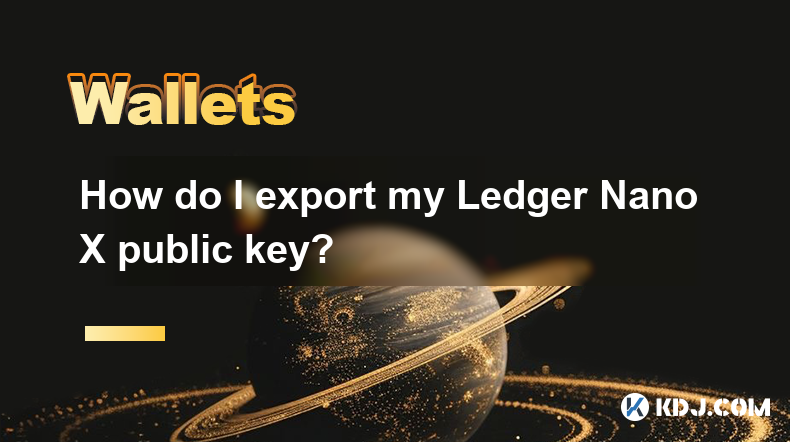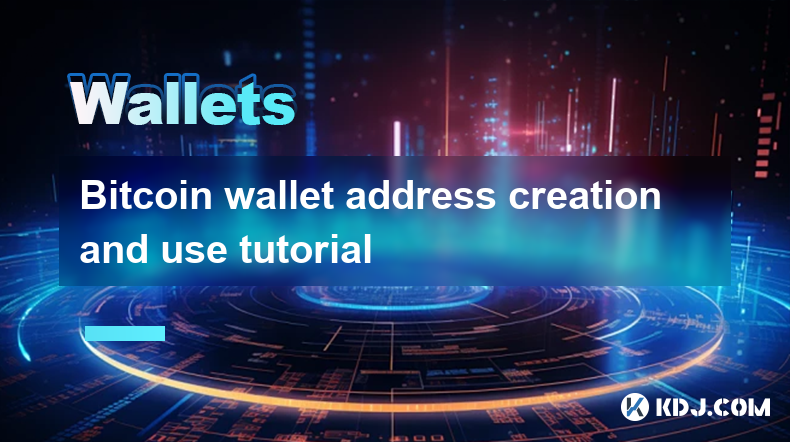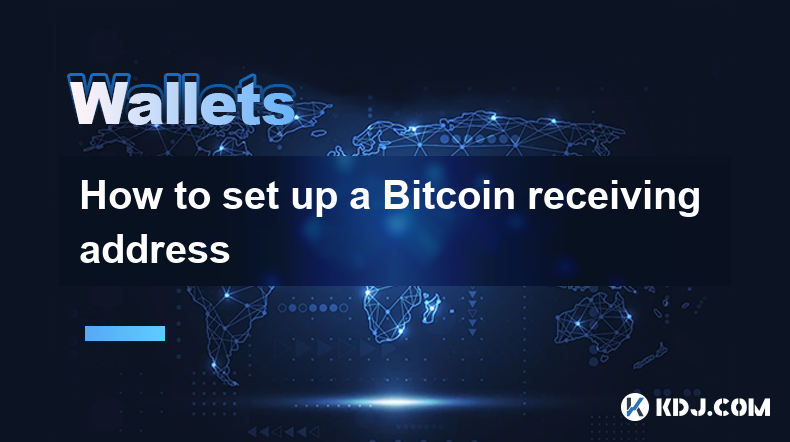-
 Bitcoin
Bitcoin $82,099.5826
-1.34% -
 Ethereum
Ethereum $1,817.9545
-1.07% -
 Tether USDt
Tether USDt $0.9999
0.02% -
 XRP
XRP $2.0815
-3.96% -
 BNB
BNB $595.8647
-1.53% -
 Solana
Solana $124.0327
-0.92% -
 USDC
USDC $1.0000
0.01% -
 Dogecoin
Dogecoin $0.1634
-3.94% -
 Cardano
Cardano $0.6445
-4.65% -
 TRON
TRON $0.2336
1.34% -
 Toncoin
Toncoin $3.9381
2.61% -
 Chainlink
Chainlink $13.2201
-3.75% -
 UNUS SED LEO
UNUS SED LEO $9.0947
-5.84% -
 Stellar
Stellar $0.2646
-1.90% -
 Avalanche
Avalanche $18.6234
-3.91% -
 Shiba Inu
Shiba Inu $0.0...01214
-3.88% -
 Sui
Sui $2.2126
-6.78% -
 Hedera
Hedera $0.1604
-6.61% -
 Polkadot
Polkadot $4.0237
-1.97% -
 Litecoin
Litecoin $82.1655
-4.48% -
 MANTRA
MANTRA $6.2849
-1.13% -
 Bitcoin Cash
Bitcoin Cash $298.8203
-2.66% -
 Dai
Dai $1.0000
0.02% -
 Bitget Token
Bitget Token $4.4293
-4.57% -
 Ethena USDe
Ethena USDe $1.0000
0.01% -
 Pi
Pi $0.6976
-9.77% -
 Hyperliquid
Hyperliquid $12.5853
-0.74% -
 Monero
Monero $215.4717
-0.22% -
 Uniswap
Uniswap $5.8825
-1.85% -
 Aptos
Aptos $5.1958
-2.29%
How do I export my Ledger Nano X public key?
Your private key is secret and grants access to your crypto, while your public key, like a bank account number, can be shared to receive funds safely.
Mar 28, 2025 at 02:28 pm

Understanding Public and Private Keys in Crypto
Before we delve into exporting your Ledger Nano X public key, it's crucial to understand the fundamental difference between public and private keys. Your private key is like your bank's vault combination – it's absolutely secret and grants you sole access to your cryptocurrency. Sharing it compromises your funds entirely. Conversely, your public key is like your bank account number; you can share it freely to receive funds. It cannot be used to spend your cryptocurrency.
Why You Need Your Public Key
You primarily need your public key to receive cryptocurrency. When someone sends you funds, they use your public key to encrypt the transaction, ensuring only you, with your corresponding private key, can decrypt and access those funds. You may also need your public key for certain decentralized applications (dApps) or exchanges that require verification of your cryptocurrency holdings. However, remember that simply possessing your public key doesn't allow anyone to access your funds.
The Ledger Nano X and Public Key Access
The Ledger Nano X, a popular hardware wallet, prioritizes security by preventing direct export of your private keys. This is a crucial security feature. However, you can access your public keys through various methods, depending on the cryptocurrency and the application you're using. The Ledger device itself doesn't offer a direct "export public key" button. Instead, the process involves interacting with specific applications or wallets.
Accessing Your Public Keys: Step-by-Step
The exact method for accessing your public key varies depending on the cryptocurrency. There isn't a universal "export" function. Here's a general outline of the process:
- Connect your Ledger Nano X to your computer: Ensure your device is properly connected and recognized by your computer.
- Open the relevant cryptocurrency application: On your Ledger device, navigate to and open the application for the specific cryptocurrency (e.g., Bitcoin, Ethereum).
- Launch your cryptocurrency wallet: Open the wallet software on your computer that supports your Ledger device. This could be a desktop wallet, a web wallet, or an exchange's interface.
- Allow access: Your wallet software will prompt you to allow the application on your Ledger device to access your accounts. Always carefully verify the address displayed on your Ledger screen.
- View your public address: Once connected, your wallet software should display your public address. This address acts as your public key for receiving transactions. Note that this isn't always directly labeled as a "public key," but it functions as one.
Different Cryptocurrencies, Different Methods
The process may differ slightly depending on the specific cryptocurrency and wallet software you are using. For instance, accessing your Bitcoin public key might differ from accessing your Ethereum public key. Always consult the documentation of your specific cryptocurrency and wallet software for detailed instructions. The core principle remains the same: the wallet software interacts with your Ledger device to display the necessary public address/key information.
Security Considerations
Remember that your Ledger Nano X's security relies on never revealing your private keys. While you're accessing your public keys, ensure you're using reputable software and websites. Avoid downloading software from untrusted sources or visiting suspicious websites. Always visually verify the address displayed on your Ledger Nano X screen matches the address shown on your computer screen before proceeding with any transaction.
Public Key vs. Public Address
It's important to clarify the terminology. While often used interchangeably, there's a subtle difference. Your public key is a cryptographic key used in the encryption process. Your public address is a human-readable representation of your public key, typically a long string of alphanumeric characters. For receiving cryptocurrency, you primarily use your public address. However, some advanced applications might require your actual public key.
Common Questions and Answers
Q: Can I export my Ledger Nano X private key?
A: No, Ledger Nano X does not allow the direct export of private keys. This is a crucial security feature to protect your funds.
Q: What if I lose my Ledger Nano X?
A: If you lose your Ledger Nano X, you will lose access to your cryptocurrencies unless you have a backup recovery phrase. Never share your recovery phrase with anyone.
Q: Can I use my public key to send cryptocurrency?
A: No, your public key is only for receiving cryptocurrency. You need your private key to send funds.
Q: My wallet software isn't showing my public address. What should I do?
A: Check the documentation for your specific cryptocurrency and wallet software. Ensure your Ledger Nano X is properly connected and the correct application is open on the device. Try restarting both your computer and your Ledger device. If the problem persists, contact the support team for your wallet software.
Q: Is it safe to share my public key?
A: Sharing your public key is generally safe, as it cannot be used to access your funds. However, exercise caution and only share it with trusted sources and legitimate applications.
Q: How do I know if a website is legitimate when asking for my public key?
A: Always verify the legitimacy of a website before providing any information. Look for secure connections (HTTPS), read reviews, and check for official contact information. If you're unsure, it's best to avoid providing your public key.
Disclaimer:info@kdj.com
The information provided is not trading advice. kdj.com does not assume any responsibility for any investments made based on the information provided in this article. Cryptocurrencies are highly volatile and it is highly recommended that you invest with caution after thorough research!
If you believe that the content used on this website infringes your copyright, please contact us immediately (info@kdj.com) and we will delete it promptly.
- CZ Announces Plan to Donate 500 BNB Each to Myanmar and Thailand
- 2025-03-31 20:00:12
- Bitcoin (BTC -2.46%) has earned a place in almost every investor's portfolio.
- 2025-03-31 20:00:12
- Bitcoin (BTC) ETF Witnessed a Major Shift as Investors Pulled out $93 Million
- 2025-03-31 19:55:12
- Nigeria Accuses Binance of Facilitating Terrorism and Kidnapping Financing
- 2025-03-31 19:55:12
- A Sentiment Shift Appears Underway Within the XRP Community
- 2025-03-31 19:50:12
- A Quarter of S&P 500 Firms Could Be Holding Bitcoin on Their Balance Sheets by 2030: Report
- 2025-03-31 19:50:12
Related knowledge

How to easily generate a Bitcoin payment address
Mar 29,2025 at 10:49am
Generating a Bitcoin payment address might seem daunting, but it's actually quite straightforward. This process is crucial for receiving Bitcoin, as each transaction requires a unique address. Understanding how this works is fundamental to using Bitcoin effectively. This guide will walk you through the simple steps, regardless of your technical experti...

Bitcoin address creation steps and common problems
Mar 30,2025 at 06:07am
Understanding Bitcoin AddressesA Bitcoin address is a unique identifier, similar to a bank account number, used to receive Bitcoin. It's a string of alphanumeric characters generated from a public key, derived from your private key. Understanding the distinction between public and private keys is crucial for Bitcoin security. Your private key should be...

How to make your own Bitcoin wallet address
Mar 29,2025 at 08:42pm
Creating your own Bitcoin wallet address is crucial for securing and managing your Bitcoin holdings. It allows you to independently receive and send Bitcoin without relying on third-party services. This process involves understanding the different types of wallets and choosing the one that best suits your needs and technical expertise. Incorrectly gene...

Bitcoin wallet address creation and use tutorial
Mar 29,2025 at 10:14pm
Understanding Bitcoin Wallet AddressesA Bitcoin wallet doesn't store Bitcoin in the way a traditional bank account does. Instead, it stores private keys, which are cryptographic secrets allowing you to access and spend your Bitcoin. Your Bitcoin address, on the other hand, is a public identifier, like an email address, that others can use to send you B...

Bitcoin address generation and secure storage guide
Mar 30,2025 at 08:07am
Understanding Bitcoin AddressesA Bitcoin address is essentially your public key, a string of alphanumeric characters used to receive Bitcoin. It's analogous to your bank account number. Unlike your private key, which is crucial for spending your Bitcoin, your address can be shared publicly without compromising your funds. Generating a new address is sim...

How to set up a Bitcoin receiving address
Mar 30,2025 at 06:14pm
Understanding Bitcoin Receiving AddressesA Bitcoin receiving address is essentially your unique identifier on the Bitcoin network. It's a string of alphanumeric characters that allows others to send Bitcoin to you. Think of it like your bank account number, but specifically for Bitcoin. You need a receiving address to receive Bitcoin. Crucially, you ca...

How to easily generate a Bitcoin payment address
Mar 29,2025 at 10:49am
Generating a Bitcoin payment address might seem daunting, but it's actually quite straightforward. This process is crucial for receiving Bitcoin, as each transaction requires a unique address. Understanding how this works is fundamental to using Bitcoin effectively. This guide will walk you through the simple steps, regardless of your technical experti...

Bitcoin address creation steps and common problems
Mar 30,2025 at 06:07am
Understanding Bitcoin AddressesA Bitcoin address is a unique identifier, similar to a bank account number, used to receive Bitcoin. It's a string of alphanumeric characters generated from a public key, derived from your private key. Understanding the distinction between public and private keys is crucial for Bitcoin security. Your private key should be...

How to make your own Bitcoin wallet address
Mar 29,2025 at 08:42pm
Creating your own Bitcoin wallet address is crucial for securing and managing your Bitcoin holdings. It allows you to independently receive and send Bitcoin without relying on third-party services. This process involves understanding the different types of wallets and choosing the one that best suits your needs and technical expertise. Incorrectly gene...

Bitcoin wallet address creation and use tutorial
Mar 29,2025 at 10:14pm
Understanding Bitcoin Wallet AddressesA Bitcoin wallet doesn't store Bitcoin in the way a traditional bank account does. Instead, it stores private keys, which are cryptographic secrets allowing you to access and spend your Bitcoin. Your Bitcoin address, on the other hand, is a public identifier, like an email address, that others can use to send you B...

Bitcoin address generation and secure storage guide
Mar 30,2025 at 08:07am
Understanding Bitcoin AddressesA Bitcoin address is essentially your public key, a string of alphanumeric characters used to receive Bitcoin. It's analogous to your bank account number. Unlike your private key, which is crucial for spending your Bitcoin, your address can be shared publicly without compromising your funds. Generating a new address is sim...

How to set up a Bitcoin receiving address
Mar 30,2025 at 06:14pm
Understanding Bitcoin Receiving AddressesA Bitcoin receiving address is essentially your unique identifier on the Bitcoin network. It's a string of alphanumeric characters that allows others to send Bitcoin to you. Think of it like your bank account number, but specifically for Bitcoin. You need a receiving address to receive Bitcoin. Crucially, you ca...
See all articles






















































































